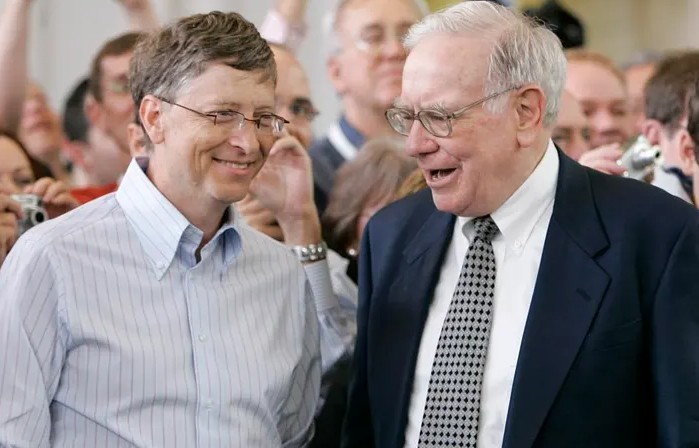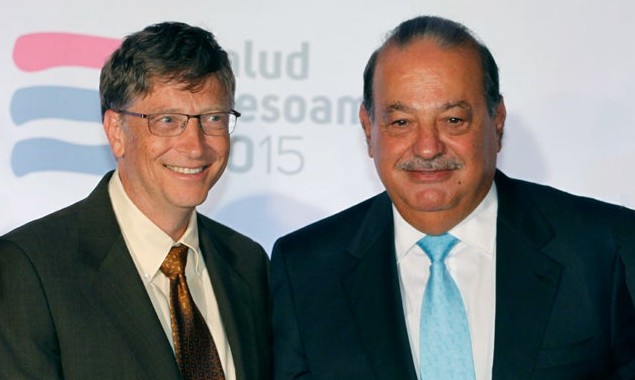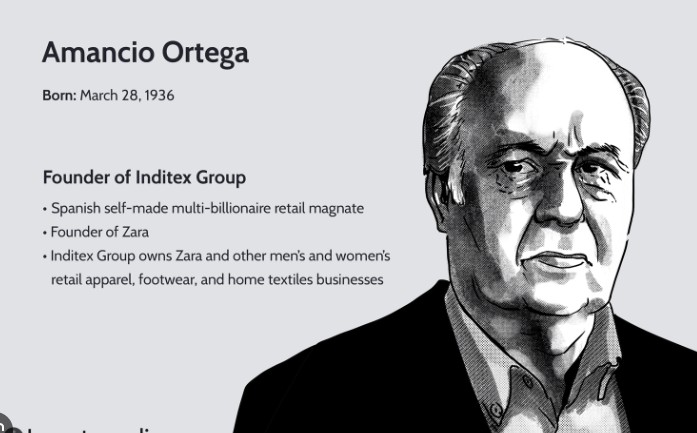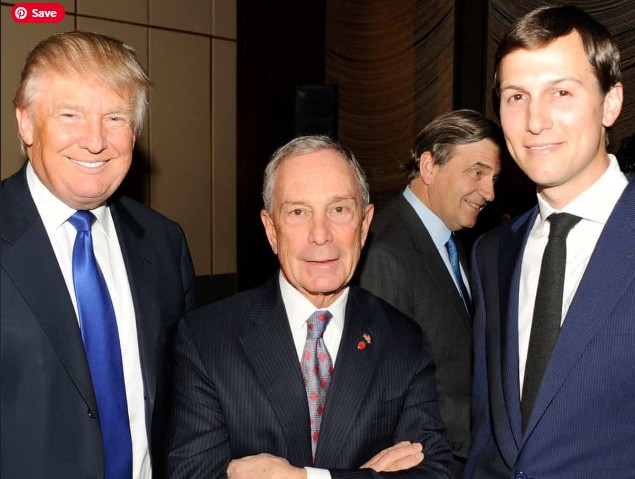The Oracle of Omaha: A Deep Dive into Warren Buffett’s Life and Legacy
Part I: The Early Years – Seeds of Success
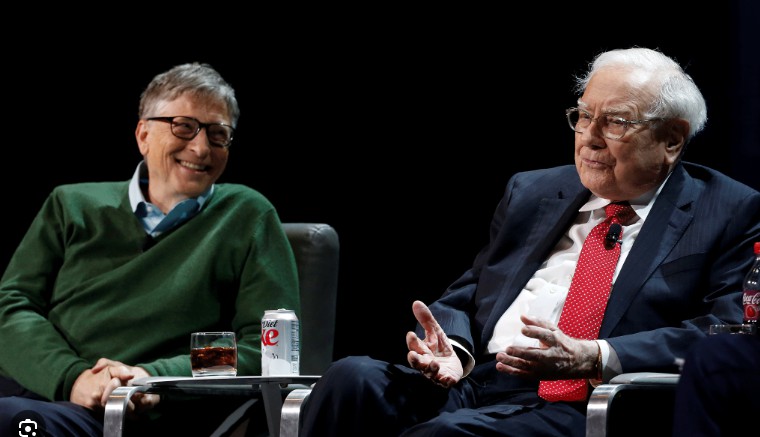
Chapter 1: A Humble Beginning: Shaping the Young Warren
Born in Omaha, Nebraska, in 1930, Warren Edward Buffett’s life story is a testament to the power of unwavering focus, relentless pursuit of knowledge, and a deep-seated belief in the principles of value investing. His formative years were marked by a strong influence from his family, who instilled in him the values of hard work, honesty, and frugality.
1.1. Growing Up in Omaha: The Entrepreneurial Spirit
From a young age, Buffett displayed an exceptional entrepreneurial spirit. At the tender age of six, he started a paper route, quickly turning it into a profitable enterprise by buying out his competitors. This experience taught him valuable lessons about business acumen, negotiation skills, and the importance of customer service.
1.2. An Unquenchable Thirst for Knowledge: Early Influences
Buffett’s intellectual curiosity was nurtured by his parents, who encouraged him to read widely and explore diverse subjects. He developed a passion for numbers and business, devouring books on finance and investing. This early exposure to financial literacy laid the foundation for his future success.
1.3. The Power of Mentorship: Benjamin Graham’s Influence
A pivotal moment in Buffett’s life came when he discovered the teachings of Benjamin Graham, the legendary investor considered the father of value investing. Graham’s book, The Intelligent Investor, resonated deeply with Buffett, shaping his investment philosophy and providing the framework for his future success.
1.4. The University of Pennsylvania: Fine-Tuning his Skills
At the Wharton School of the University of Pennsylvania, Buffett further honed his business acumen. He excelled in his studies, demonstrating a keen understanding of financial concepts and a natural ability to analyze businesses. This experience instilled in him the importance of rigorous research, critical thinking, and long-term planning.
1.5. The “Buffett Method” Takes Shape: Early Investments and Lessons
While still in college, Buffett started his first investment partnership, “Buffett Associates,” with a small group of investors. This venture proved to be highly successful, demonstrating his exceptional ability to identify undervalued companies with strong potential. Through these early experiences, Buffett refined his investment strategy, focusing on intrinsic value, long-term perspective, and a disciplined approach to risk management.
Chapter 2: The Birth of Berkshire Hathaway: A Transformative Journey
In 1962, Buffett’s career took a significant turn when he acquired a struggling textile company, Berkshire Hathaway. This acquisition marked the beginning of an extraordinary journey that would transform Berkshire Hathaway into one of the most successful and influential investment companies in history.
2.1. Turning Around a Troubled Company: From Textiles to Investments
Initially, Buffett’s focus was on improving the operations of Berkshire Hathaway. However, he soon realized that the company’s true potential lay not in textiles, but in the realm of investments. He began to systematically divest the textile operations, allocating the proceeds to acquiring stakes in other promising companies.
2.2. Building a Portfolio of Value: Acquiring Gems of American Businesses
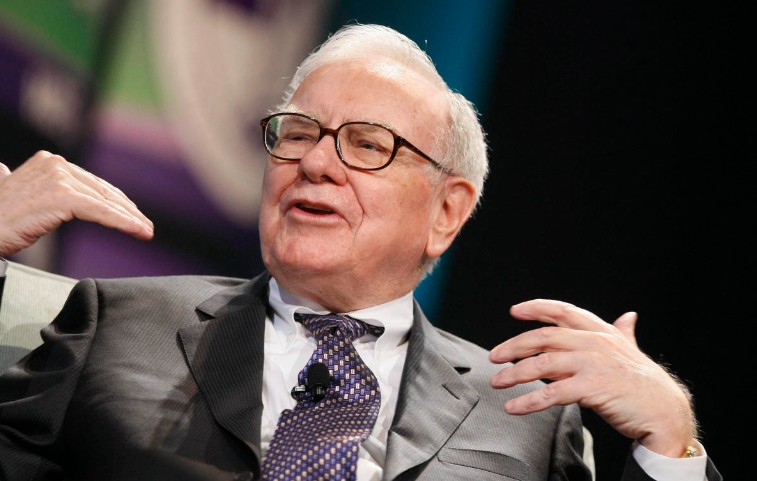
Over the years, Buffett and his team at Berkshire Hathaway built a diverse portfolio of businesses, including iconic names like Coca-Cola, American Express, and Geico. This strategy, built on the foundation of value investing, proved highly successful, consistently delivering superior returns to shareholders.
2.3. The Art of Ownership: A Hands-On Approach to Business
Buffett’s investment philosophy extended beyond simply acquiring stakes in companies. He believed in active ownership, taking a hands-on approach to managing the businesses he invested in. He actively engaged with the management teams, providing guidance, advice, and strategic direction.
2.4. The Berkshire Hathaway Annual Meeting: A Gathering of Investors
The annual shareholders’ meeting of Berkshire Hathaway has become a legendary event, attracting thousands of investors from around the world. Buffett, along with his long-time partner Charlie Munger, uses this platform to share their insights on the investment landscape, answer questions from investors, and reaffirm their commitment to the principles of value investing.
Chapter 3: The Oracle of Omaha: A Global Icon of Investing
Warren Buffett’s reputation as a brilliant investor has earned him the nickname “The Oracle of Omaha.” His investment record, coupled with his wisdom and insights, has made him one of the most respected figures in the world of finance.
3.1. The Power of Patience: Long-Term Investing as a Discipline
Buffett’s success is a testament to the power of long-term investing. He consistently emphasizes the importance of patience, staying invested through market fluctuations and focusing on the underlying value of businesses.
3.2. The Simplicity of Value Investing: Uncovering Intrinsic Worth
Buffett’s investment philosophy is characterized by its simplicity and clarity. He believes in focusing on the fundamental principles of value investing: understanding a company’s intrinsic value, considering its future prospects, and investing at a price significantly below its intrinsic worth.
3.3. The Importance of Integrity: Building Trust and Reputation
Buffett’s ethical conduct and unwavering commitment to integrity have played a significant role in his success. He believes that building trust with investors and partners is essential for creating a sustainable and profitable business.
3.4. Giving Back to Society: Philanthropic Efforts and Legacy
Buffett has dedicated a significant portion of his wealth to philanthropic causes, particularly in the areas of education, health care, and poverty alleviation. He is a strong advocate for charitable giving and has pledged to donate the majority of his fortune to charitable foundations, leaving a lasting impact on the world.
Part II: The Investment Philosophy: A Roadmap to Success
Chapter 4: The Pillars of Value Investing: Principles for Sustainable Growth
Buffett’s investment philosophy, deeply rooted in the teachings of Benjamin Graham, revolves around the principles of value investing. This approach emphasizes the importance of intrinsic value, long-term perspective, and disciplined risk management.
4.1. Intrinsic Value: Uncovering the True Worth of a Business
Buffett defines intrinsic value as the present value of a company’s future cash flows. This concept requires a deep understanding of the business, its industry, and its competitive landscape. By carefully analyzing a company’s financials, management team, and competitive advantages, investors can determine its true worth, independent of market fluctuations.
4.2. Margin of Safety: Buying with a Discount to Intrinsic Value
Buffett advocates for a margin of safety in his investments, purchasing businesses at a price significantly below their intrinsic value. This buffer protects against unforeseen risks and ensures a positive return on investment, even if the business underperforms expectations.
4.3. Circle of Competence: Focusing on Understandable Businesses
Buffett believes in investing only in businesses he fully understands, staying within his “circle of competence.” This approach ensures that he can effectively assess the risks and opportunities associated with a business and make informed investment decisions.
4.4. Long-Term Perspective: Avoiding Short-Term Noise
Buffett emphasizes the importance of long-term thinking in investing. He believes that focusing on the long-term prospects of a business, rather than short-term market fluctuations, is essential for generating sustainable returns.
4.5. Patience and Discipline: Waiting for the Right Opportunities
Buffett is known for his patience and discipline as an investor. He waits for the right opportunities to arise, refusing to rush into investments that do not meet his criteria. This disciplined approach allows him to maximize his returns and minimize his risks.
Chapter 5: The Buffett Portfolio: A Masterclass in Stock Selection
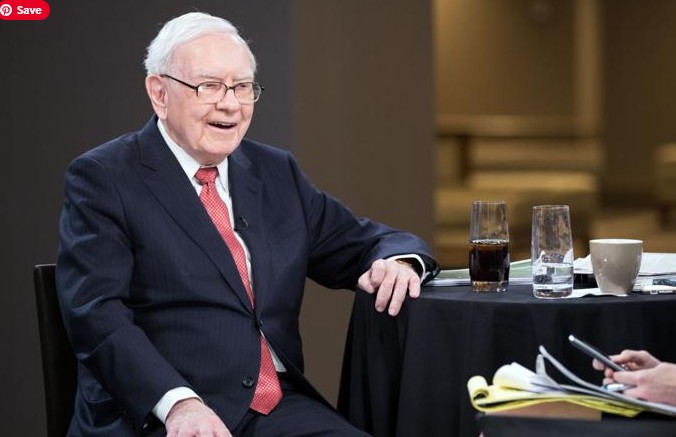
Buffett’s investment portfolio is a testament to his mastery of value investing. He focuses on acquiring businesses with strong fundamentals, sustainable competitive advantages, and a track record of profitability.
5.1. Identifying Quality Businesses: The Moat Concept
Buffett looks for companies with a “moat,” a sustainable competitive advantage that protects them from competitors and allows them to generate strong returns over the long term. This could be brand strength, economies of scale, intellectual property, or a unique business model.
5.2. Assessing Management Quality: The Human Element of Investing
Buffett places great emphasis on management quality. He believes that a skilled and ethical management team is essential for a company’s long-term success. He looks for leaders with integrity, competence, and a commitment to creating value for shareholders.
5.3. Understanding Industry Dynamics: Analyzing Competitive Landscape
Buffett carefully analyzes the industries in which his investments operate, considering their competitive landscape, regulatory environment, and growth potential. He seeks to invest in industries with strong growth prospects and favorable dynamics.
5.4. The Importance of Valuation: Balancing Value and Growth
Buffett’s investment decisions are informed by a careful valuation process, balancing the value of a business with its growth potential. He avoids overpaying for growth, preferring companies with strong earnings and a track record of consistent profitability.
5.5. The “Berkshire Way”: A Unique Approach to Investing
Buffett’s approach to investing is often referred to as the “Berkshire Way,” characterized by a long-term focus, a concentrated portfolio, and a hands-on approach to ownership. This philosophy has proven remarkably successful, consistently delivering superior returns to shareholders.
Part III: Beyond Investments: The Legacy and Impact
Chapter 6: The Influence of Warren Buffett: Shaping the World of Finance
Warren Buffett’s influence on the world of finance extends far beyond his investment success. His teachings, philosophies, and actions have inspired generations of investors and entrepreneurs.

6.1. Value Investing: A Global Paradigm Shift
Buffett’s advocacy for value investing has led to a paradigm shift in the investment world. His success has demonstrated the effectiveness of this approach, promoting a long-term perspective and a focus on fundamental values.
6.2. Ethical Business Practices: A Model for Corporate Responsibility
Buffett’s commitment to ethical business practices has set a high standard for corporate conduct. He believes that integrity, transparency, and social responsibility are essential for long-term success.
6.3. Philanthropy: A Legacy of Giving Back
Buffett’s philanthropic endeavors have inspired countless individuals to give back to society. His commitment to charitable giving has helped address critical social issues and make a meaningful difference in the lives of millions.
6.4. The “Buffett Effect”: Shaping Market Behavior
Buffett’s influence extends to the market itself. His investment decisions and public pronouncements often impact stock prices and market sentiment. This “Buffett effect” underscores the power of his insights and the respect he commands in the investment community.
Chapter 7: The Future of Berkshire Hathaway: Ensuring Continuity and Growth
The future of Berkshire Hathaway is closely tied to Warren Buffett’s legacy. The company has established robust succession planning processes to ensure continuity and preserve the principles of value investing.
7.1. The Role of Succession Planning: Ensuring a Smooth Transition
Buffett has identified a team of experienced managers to lead Berkshire Hathaway after his retirement. This succession plan aims to ensure that the company’s values and investment philosophy are preserved, while also maintaining its growth trajectory.
7.2. Building on a Strong Foundation: The Next Chapter for Berkshire
Berkshire Hathaway’s diversified portfolio, strong financial position, and experienced management team provide a solid foundation for future growth. The company is well-positioned to capitalize on new opportunities and navigate the ever-changing global economy.
7.3. The Enduring Legacy of Value Investing: A Timeless Approach
Warren Buffett’s legacy will continue to inspire investors for generations to come. His teachings on value investing, ethical business practices, and the importance of long-term thinking remain as relevant today as ever before.
Chapter 8: The “Oracle” Speaks: Insights for the Future
Warren Buffett’s insights into the economy, markets, and business world are highly sought after. He has consistently offered valuable advice to investors and entrepreneurs, providing guidance on navigating the complexities of the modern world.
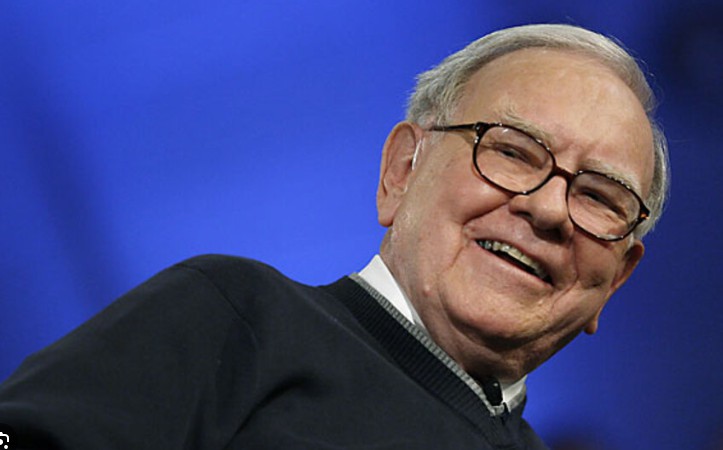
8.1. The Importance of Adaptability: Embracing Change in a Dynamic World
Buffett acknowledges the importance of adaptability in an ever-changing world. He emphasizes the need for businesses to continuously evolve, embracing new technologies, market trends, and consumer preferences.
8.2. The Power of Innovation: Driving Growth and Efficiency
Buffett recognizes the transformative power of innovation. He encourages businesses to invest in research and development, fostering creativity and seeking out new opportunities.
8.3. The Value of Human Capital: Investing in People and Culture
Buffett believes that human capital is a company’s most valuable asset. He emphasizes the importance of investing in employees, creating a positive work environment, and fostering a culture of excellence.
8.4. The Importance of Ethical Decision-Making: Building Trust and Long-Term Sustainability
Buffett consistently stresses the importance of ethical decision-making in business. He believes that integrity, transparency, and a commitment to social responsibility are essential for building trust with stakeholders and achieving long-term sustainability.
8.5. The “Buffett Way”: A Framework for Success in the Future
Buffett’s teachings provide a framework for success in the future. His emphasis on value investing, long-term thinking, and ethical conduct continues to be relevant in an increasingly complex and dynamic world.
Conclusion: A Legacy of Wisdom and Impact
Warren Buffett’s life story is an inspiration to all who seek to achieve success through hard work, intellectual curiosity, and a commitment to ethical principles. His investment philosophy, grounded in value investing, has transformed the world of finance, shaping the way investors approach the market.
Buffett’s legacy will continue to inspire generations to come, reminding us of the power of patience, discipline, and a long-term perspective. His contributions to society through his philanthropic efforts and his unwavering commitment to ethical business practices have left a lasting impact on the world. The “Oracle of Omaha” remains a global icon, a beacon of wisdom and a reminder that the principles of value investing, integrity, and long-term vision are timeless and universal.

